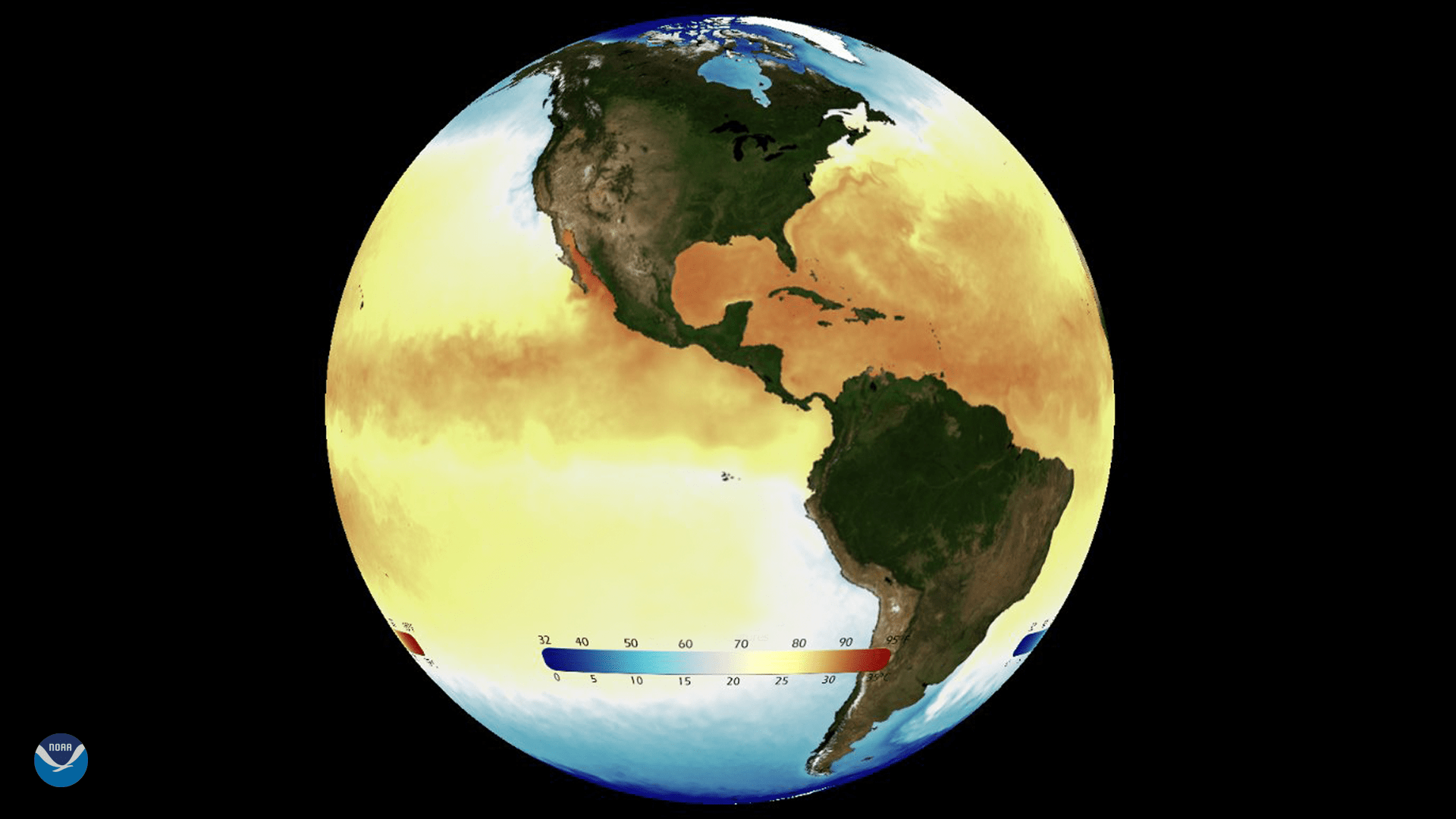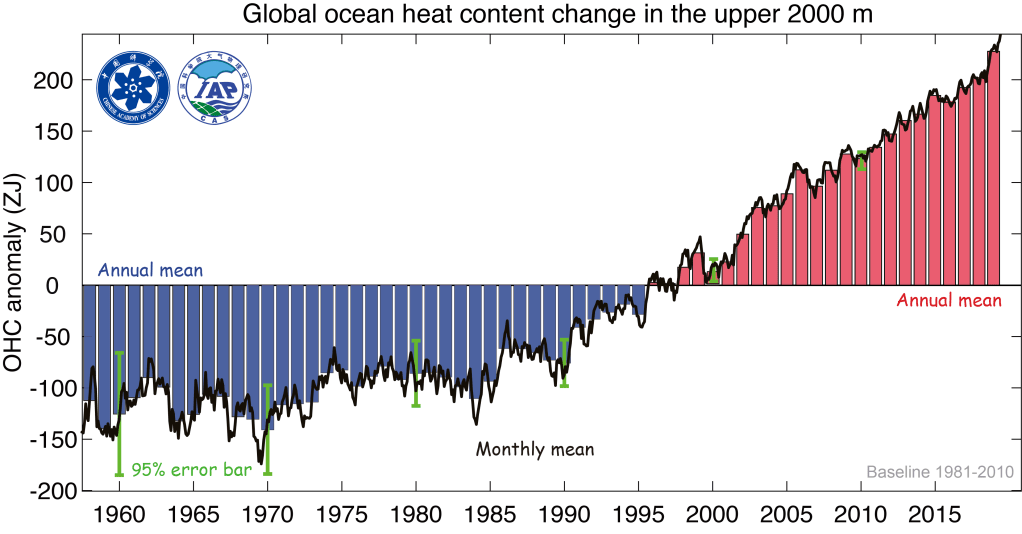
Based on data collected worldwide, ocean heat content continues to rise, outpacing its early rate of warming by a large percentage, according to results published in Advances in Atmospheric Sciences. The paper is internationally co-authored by fourteen researchers from institutions in the United States and China, writes the NOAA.
In addition, 2019 was the warmest in the 65-year record of ocean observations, based on the analysis by researchers from NCEI and the Institute of Atmospheric Physics in Beijing. The five highest years on record for annual ocean heat content (OHC) are 2015–2019.
“These data reveal that the world oceans were the warmest in recorded human history in 2019,” the authors concluded.
OHC describes the amount of heat stored in the ocean in the upper levels, from the surface to 2,000 meters in depth. OHC is used to quantify the rate of global warming. High OHC can disrupt marine ecosystems, bleach coral, contribute to extreme weather events such as hurricanes, and affect sea-level rise.

Ocean Heat Content Trends
OHC has been on the rise since about 1960, according to the analysis. Changes in OHC are determined by comparing current ocean temperatures to long-term averages. For the recent analysis, researchers compared two time periods, 1955–86 and 1987–2019, and identified a significant increase in the warming rate—approximately 450 percent—since early record-keeping began. The analysis of long-term periods such as these proves more accurate in assessing OHC because a number of variables, including El Niño and La Niña, can change conditions in shorter terms.
The ocean absorbs excess heat from the Earth’s system, acting to balance the excess heat from rising global temperatures. Scientists have determined that the ocean absorbs more than 90 percent of the excess heat, which is attributed to greenhouse gas emissions. The greater OHC coincides with increases in global average land and sea surface temperatures. Based on the annual Global Climate Report produced by NCEI, the five warmest years for the globe have occurred since 2015; nine of the 10 warmest years have occurred since 2005. Warming trends in the ocean are likely to continue even if global average surface temperatures stabilize, the authors noted.
Data for the analysis came from the World Ocean Database.